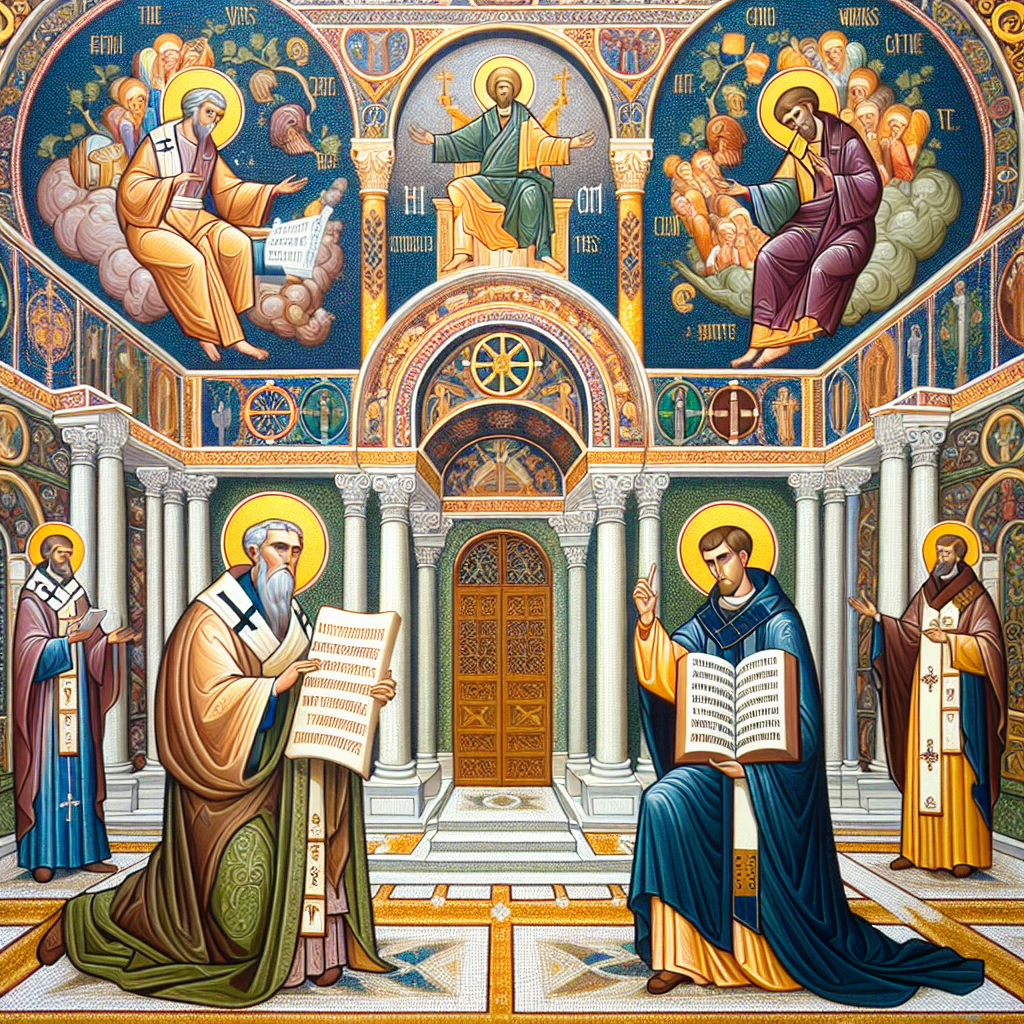Justification: Understanding Catholic and Protestant Perspectives
Introduction: Exploring Diverging Views on Justification
The question of justification stands at the heart of one of the greatest theological divides in Christian history—the divide between Catholic and Protestant theology. This debate has raged on since the Reformation, with Protestant reformers championing Sola Fide or "faith alone" as the sole basis of justification, while the Catholic Church espouses a more integrated process involving both faith and works. By exploring key arguments and counterarguments, we can shed light on this profound debate and gain deeper insights into the nuances of Christian doctrine.
1. Objection: Protestant Emphasis on Justification by Faith Alone
1.1 Protestant Argument: Faith as Sole Basis for Justification
Protestants assert that justification is achieved through faith alone, a doctrine firmly rooted in passages like Romans 3:28, "For we consider that a person is justified by faith apart from works of the Law," and Ephesians 2:8-9, "For by grace you have been saved through faith, and this is not from you; it is the gift of God; it is not from works, so that no one may boast."
The impetus for this view emerged during the Reformation when reformers, like Martin Luther, rejected what they perceived as the Catholic Church's emphasis on deeds and traditions—an emphasis they believed overshadowed the centrality of faith. This theological stance offers believers a sense of assurance that their salvation is secured through faith alone, independent of their moral or religious achievements.
1.2 Catholic Response: Justification as a Process of Faith and Works
In contrast, the Catholic Church teaches that justification is an ongoing process that involves cooperation between faith and works. James 2:24 poignantly states, "You see that a person is justified by works and not by faith alone." This underscores the Catholic vision that faith, while foundational, is perfected and manifested through charitable works.
The Catholic understanding revolves around the transformative power of grace, which sanctifies individuals and enables them to perform good works in harmony with their faith. This grace, far from being a mere extrinsic favor, effects a profound internal renewal—changing the believer's very being and leading to a lived experience of righteousness.
1.3 Supporting Evidence
The historical context of the Reformation provides valuable insights into the Protestant emphasis on Sola Fide. The reformers' concerns were rooted in a perceived over-reliance on human efforts for salvation in the Church at the time, prompting a return to scriptural foundations.
An analysis of key scriptural passages reveals complementary truths. While Romans 3:28 and Ephesians 2:8-9 highlight the necessity of faith, James 2:24 reminds us of the inseparability of faith and works—a harmony echoed throughout Christian Tradition.
"Faith and works are as inseparable as body and soul, as vital breath and body in life."
— St. Augustine, Sermon 35
Additionally, the writings of Church Fathers consistently affirm the symbiotic relationship between faith and works in the economy of salvation, establishing a continuous line of theological reflection well before the Reformation.
2. Theological Arguments: Grace, Merit, and Assurance
2.1 Protestant Concerns: Grace vs. Human Merit
A pivotal concern among Protestants is the perceived implication within Catholic doctrine that human merit competes with or diminishes the sufficiency of Christ's atonement. The tradition of Sola Gratia, or "grace alone," underlines this fear, emphasizing that salvation is entirely a gift of divine grace.
Protestants argue that by introducing merit, Catholic theology appears to compromise the primacy of grace, suggesting that humans contribute to their salvation—a proposition many find irreconcilable with a biblical understanding of grace.
2.2 Catholic Perspective: Cooperation with Grace and Assurance
Catholics respond by clarifying that any merit they speak of is itself a result of grace. The Catholic Church teaches that God initiates salvation and sustenance of the soul with grace—and that we, in turn, respond to this grace by cooperating with it.
Through the lens of Catholic theology, God's grace transforms the believer, empowering them to act rightly. This dynamic relationship between divine initiative and human response allows for a fuller assurance of salvation—not solely based on one's faith, but on one's faith bearing fruit through works.
Scripture supports this intricate dance between grace and human cooperation:
- Philippians 2:12-13: "Continue to work out your salvation with fear and trembling, for it is God who works in you to will and to act according to his good purpose."
- Galatians 5:6: "For in Christ Jesus…the only thing that counts is faith expressing itself through love."
Conclusion: Finding Common Ground amid Theological Disagreements
As we reflect on the diverse views of justification, it's vital to acknowledge both Protestant and Catholic perspectives. On one hand, the Protestant emphasis on faith alone underscores the sufficiency and necessity of Christ's redemptive work. On the other hand, the Catholic view illustrates the transformative journey of salvation, where faith and works are intertwined through grace.
Ultimately, both traditions affirm the centrality of Christ's salvific work and the indispensable role of grace. By embracing respectful dialogue and continued study, Christians can deepen their understanding and appreciation of these theological nuances.
As a call to action, I encourage readers to explore Church teachings further, engage in fruitful discussion, and read pivotal works such as the Catechism of the Catholic Church or the writings of the Church Fathers. Link: Learn more about Catholic Church Authority






Leave a Reply